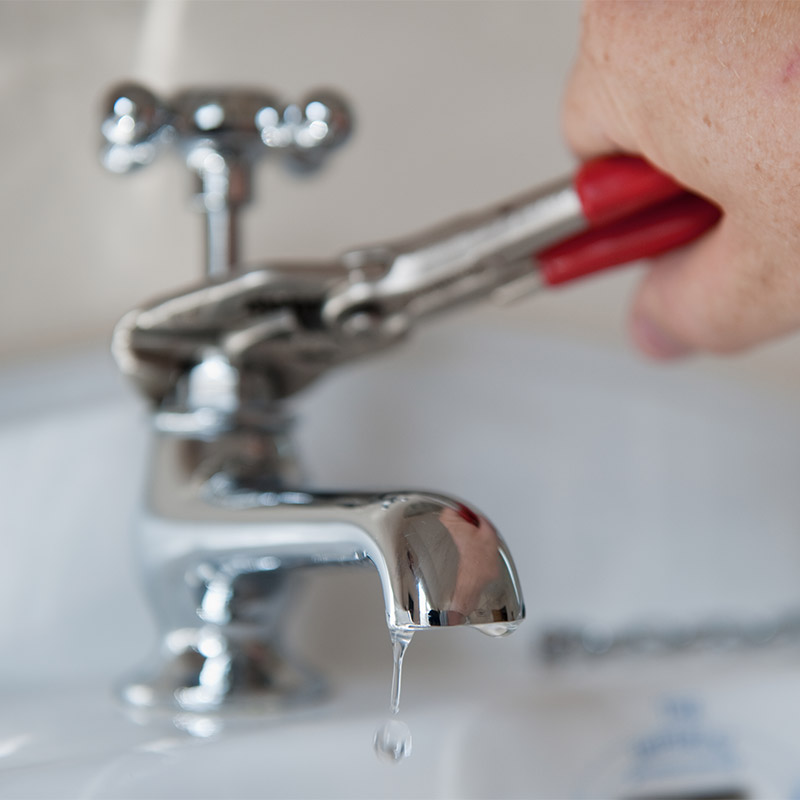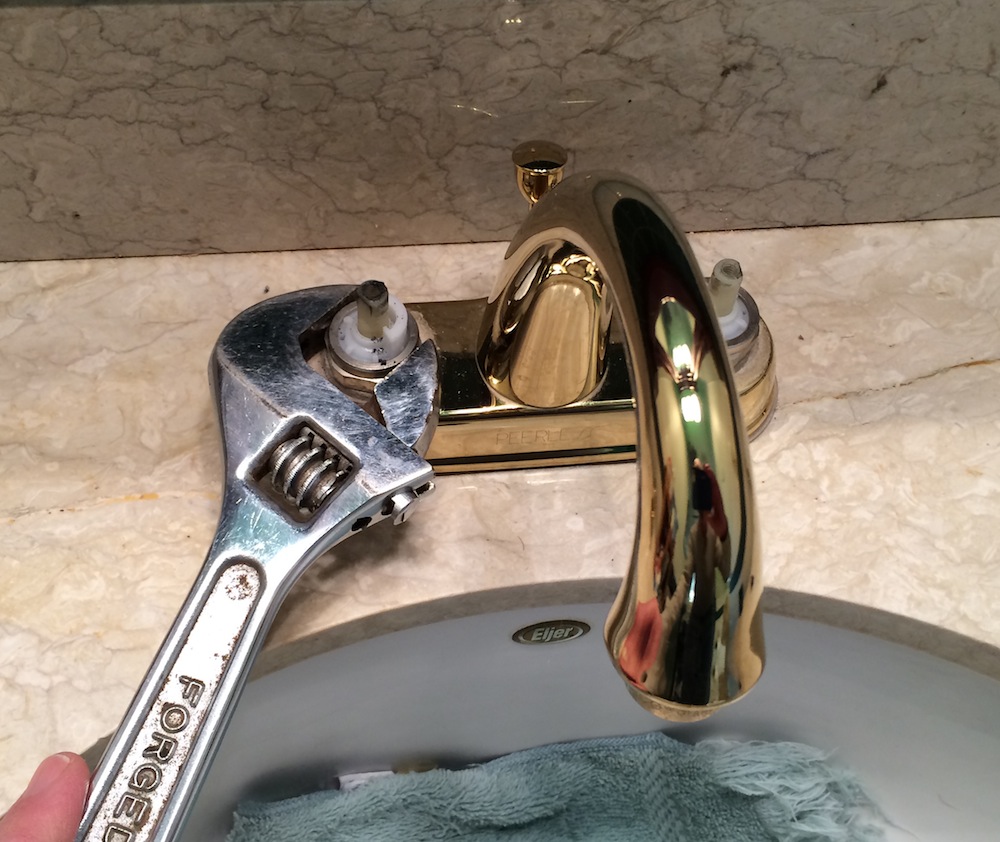Discovering the Value of Repairing a Malfunctioning Faucet
Discovering the Value of Repairing a Malfunctioning Faucet
Blog Article
We have encountered the article relating to What Causes Leaky Faucets & How To Fix Them below on the net and think it made sense to share it with you in this article.

Dripping faucets might look like a minor hassle, however their influence goes beyond just the annoyance of the sound. From wasting water to sustaining unneeded economic expenses and health and wellness risks, disregarding a leaking faucet can lead to numerous effects. In this short article, we'll delve into why it's crucial to resolve this common household problem quickly and effectively.
Wastage of Water
Ecological Effect
Trickling faucets add considerably to water wastefulness. According to the Environmental Protection Agency (EPA), a solitary tap leaking at one drip per secondly can waste greater than 3,000 gallons of water annually. This not just pressures water resources however additionally affects environments and wild animals dependent on them.
Financial Expenses
Raised Water Costs
Beyond the ecological influence, trickling taps can inflate water costs significantly. The built up wastefulness in time converts into greater utility expenses, which can have been avoided with timely repair services.
Possible Home Damage
Furthermore, prolonged dripping can lead to harm to fixtures and surfaces bordering the tap. Water buildup can create staining, deterioration, and also structural issues if left neglected, causing extra repair work prices.
Health and wellness Issues
Mold And Mildew and Mildew Growth
The consistent existence of dampness from a leaking tap produces a perfect setting for mold and mold growth. These fungi not just compromise indoor air quality however also present wellness risks, especially for individuals with respiratory system problems or allergies.
Waterborne Illness
Stationary water in leaking taps can end up being a breeding place for bacteria and other pathogens, enhancing the danger of waterborne diseases. Contaminants such as Legionella bacteria grow in stationary water, potentially bring about severe health problems when ingested or breathed in.
Do it yourself vs. Professional Repair service
Pros and Cons of DIY Repair
While some may try to repair a trickling faucet themselves, do it yourself repair services come with their own set of difficulties. Without proper expertise and tools, DIY attempts can aggravate the issue or bring about incomplete repair services, lengthening the problem.
Benefits of Hiring an Expert Plumber
Employing an expert plumber makes certain that the underlying cause of the dripping faucet is dealt with successfully. Plumbers possess the proficiency and equipment to diagnose and repair tap issues efficiently, saving time and minimizing the threat of more damages.
Step-by-Step Guide to Fixing a Dripping Tap
Devices Needed
Before trying to deal with a trickling tap, gather the essential devices, including a flexible wrench, screwdrivers, replacement components (such as washing machines or cartridges), and plumber's tape.
Common Faucet Issues and Their Solutions
Identify the sort of tap and the specific concern creating the drip. Typical issues include damaged washers, corroded shutoff seats, or malfunctioning O-rings. Refer to supplier guidelines or on the internet tutorials for step-by-step assistance on fixings.
Safety nets
Regular Upkeep Tips
To prevent trickling faucets, execute routine upkeep such as cleaning aerators, checking for leaks, and changing damaged components quickly. In addition, consider setting up water-saving tools or upgrading to a lot more reliable fixtures.
Significance of Prompt Fixes
Dealing with trickling taps as soon as they're observed protects against further water waste and prospective damage, inevitably saving both water and money over time.
Effect On Residential Or Commercial Property Value
Understanding of Well-Maintained Residential Property
Keeping a residential or commercial property in good condition, including dealing with maintenance concerns like trickling faucets, boosts its viewed value and desirability amongst prospective buyers or tenants.
Impact on Resale Value
Residences with well-maintained plumbing components, including taps, command greater resale values in the real estate market. Attending to dripping taps can contribute to a favorable impression throughout residential or commercial property examinations and settlements.
Ecological Responsibility
Private Payment to Conservation
Taking duty for repairing leaking taps aligns with wider initiatives towards water preservation and ecological sustainability. Every individual's actions collectively make a considerable influence on maintaining precious sources.
Lasting Living Practices
By focusing on punctual fixings and taking on water-saving behaviors, people add to lasting living techniques that profit both present and future generations.
Final thought
Dealing with a dripping faucet exceeds mere convenience; it's an important action towards saving water, decreasing financial prices, and securing health and property. Whether via do it yourself repair work or specialist aid, acting to fix trickling faucets is a tiny yet impactful way to advertise responsible stewardship of sources and add to a healthier, a lot more lasting future.
Most Common Reasons for a Leaky Faucet and How to Stop the Drip
Whether it’s your kitchen faucet leaking or a bathroom faucet leaking, one leaky faucet can waste anywhere from three to 30 gallons of water every single day. If the constant drip-drip-drip doesn’t get your attention, your water bill will. The good news is that, by following a few simple steps, chances are pretty good you can fix the problem yourself.
Why is it dripping?
Before you start taking things apart, let’s break down some of the most common causes of a leaky faucet.
Bad O-ring.
A cartridge is a valve that controls the flow of water into the faucet spout. On cartridge faucets there’s an O-ring—the little disc attached to the stem screw that holds the faucet handle in place. If it’s loose or worn-out, it can cause your sink handle to leak. Of course, the cartridge itself could be worn out. If that’s the case, make sure you replace it with the exact same kind.
Corroded valve seat.
The valve seat connects the faucet and the spout. If the leak seems to be coming from the spout, it might be because a buildup of water sediment has corroded the valve seat.
Worn-out washers or seals.
A leaky spout could be caused by a bad washer that rests against the valve seat. It’s just a matter of time before friction takes its toll. It could also be the wrong size washer or one that’s been installed incorrectly. Water sediments can also corrode inlet and outlet seals.
Water pressure.
If the faucet only drips now and then, or when you turn the handles a certain way, you should probably check your home’s water pressure.
Loose or broken parts.
The adjusting ring and packing nuts in the stream screw can become loose over time, causing your sink handle to leak. Try tightening or replacing the packing nut. If the leak is coming from the pipes underneath the sink, you probably have a broken pipe or fitting. If that’s the case, you should definitely call a plumber.
Know your faucet.
Faucets come in a variety of types. Each one has its own assembly—and its own possible causes of leaks. Learning about the four most common kinds of faucets will help you know how to take them apart and make any repairs.
How to stop a leaky faucet
Fixing that leaky faucet doesn’t have to take a lot of time, money, or expertise. It’s usually a simple matter of replacing a worn-out washer or gasket, a loose O ring, or another part. Chances are really good you can do this yourself if you follow these simple steps.
Shut off the water.
Before you tackle the faucet, cut off the water supply to the sink. There should be one valve for hot and one for cold. Hand-turn them clockwise with your hands till they close. If there are no valves under the sink, head to the basement and shut off the main water supply to the house. Then turn on the faucet until it empties out the water that’s still in the line and you’re ready to start. It’s a good idea to cover the sink drain with a plug or a rag so you don’t lose any small pieces and parts while you’re working.

As a devoted person who reads about 4 Common Reasons for a Leaky Faucet, I thought sharing that piece was worthwhile. Loved our post? Please quickly share it. Let other people check it out. Thanks a bunch for your time. Return soon.
Report this page